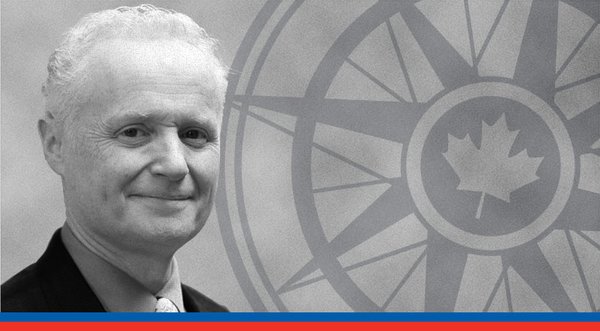In their critique of my book published in Le Devoir (“Les vraies origines de l’État providenceâ€, 7th October), Jean-Luc Migué and Gérard Bélanger take issue with several of Fearful Symmetry’s central ideas. I don’t have the space here to respond to all their arguments (those who care to do so may consult an earlier post on my blog where I respond to many of the criticisms they raised in a similar article they published in the National Post: https://brianleecrowley.com/blog/.)
On the other hand, in this new piece the authors offer a counter-interpretation of Quebec’s history that really demands a response, if for no other reason than it repeats a number of tired old myths that recent Quebec historians have firmly placed in the dustbin of history.
Migué and Bélanger write, “Before 1960, our social conscience owed much more to the rules laid down by our authoritarian Church than — contrary to Crowley’s assertions — to a commitment to limited government and the rule of law. For most of our history we lived, first, under the “ancien regime†and thereafter as a rural minority.â€
The authors thus repeat the myth of the “grande noirceur†(Great Darkness), according to which, prior to the Quiet Revolution, French-Canadian society was essentially a backward, feudal, rural and economically underdeveloped society living under the thumb of the clergy.
This myth has mostly been propagated by non-historians who wished to blacken Quebec’s past once they became dominant politically in the Sixties, and is now repeated widely by other non-historians (such as Migué and Bélanger) who really ought to know better by now. There is no denying that there is an important debate about whether or not the Quiet Revolution in fact constitutes a radical break or “rupture†in Quebec’s history. On the other hand, to my knowledge, no serious Quebec historian today subscribes to this kind of account of the allegedly wretched and pitiful state of Quebec society before 1960.
One wonders if the authors haven’t quite simply got their societies mixed up when they talk about French-Canada as a « rural minority ». French-Canadians have never been even close to being a minority in Quebec at any point in Canadian history, while the statistics concerning urbanization and industrialization paint a completely different portrait than the one presented by Migué and Bélanger.
According to the Université de Montréal historian Professor Jacques Rouillard,
The image according to which the Franco-Québécois are latecomers to urban life, or that they rejected jobs in the industrial economy, does not correspond to reality when one compares the relevant indicators to those observable in the rest of North America or other industrialised countries. Their rate of urbanisation and of participation in industrial activities is comparable that of other highly industrialised societies. [My translation]
What about the belief in the principles of economic liberalism in Quebec society before 1960, or what Migué and Bélanger are referring to when they reject my contention that the ideas of limited government and the rule of law were guiding principles at the time?
In his book on the economic history of Quebec, Professor Robert Armstrong of McGill University wrote,
Throughout the first four decades of the twentieth century, the government of Quebec occupied a unique position among provincial governments in Canada. Provincial government intervention in the regional economy lagged behind all of the other provinces; the Quebec government practiced the strongest of laissez-faire strategies.
The historian Fernande Roy, in her book on the history of ideologies in Quebec, explains the extent to which values such as private property and individual liberty found fertile soil in Quebec. She writes,
This liberal credo was widespread in the Quebec society of the time, and is to be found well beyond the confines of the business world. It is quite wrong to suggest, as some have done, that these ideals were somehow limited to the English-speaking community either. It is an abuse of history to attribute to all Quebeckers the ultramontanist point of view, which certainly endorsed a different set of values. [My translation]
Just a few days ago, Le Devoir published an interview with Éric Bédard regarding his latest book, devoted to the “reformers†of 19th century Quebec, people such as Louis-Hippolyte LaFontaine, Étienne Parent, Pierre Joseph-Olivier Chauveau, François-Xavier Garneau and others. Mr Bédard is one of the many historians who rejects the suggestion that Quebeckers lived through a “grande noirceur†in the years prior to 1960.
These reformers were powerful and remarkable personages who contributed mightily to Quebec’s progress and development. Nor should we forget the “rougesâ€, an even more radical group of reformers whose focal point was l’Institut canadien. To reduce the ideological ferment and diversity of this period to a blind adherence to the “rules of our authoritarian Church†is nothing more than a caricature with no basis in the historical record.
I am all the more mystified by the assertions of MM. Migué and Bélanger because Jean-Luc Migué knows better : in a book he published a decade ago, he contradicts the assertions he makes today and instead adopts a line completely in accordance with the one I defend in Fearful Symmetry. In particular he draws a portrait of a traditionally liberal Quebec society which was developing rapidly until the fateful moment when, in the 1960s, the province abandoned its commitment to freedom and the rule of law in favour of an unhealthy reliance on the state. In his Étatisme et déclin du Québec : Bilan de la Révolution tranquille, Migué wrote,
Throughout its modern history, from the end of the 19th century until the end of the 1960s, Quebec enjoyed a period of strong growth, which paralleled that of Ontario… The period immediately before the Quiet Revolution, namely from 1935 to 1955, a period that coincides with the high point of the rule of Maurice Duplessis, is also a period that distinguishes itself as one of the most prosperous of our entire history. Industrial production rose by 10.2% annually, a rate higher than that of both Canada and Ontario, who themselves enjoyed vigorous growth of 10% and 9.6% respectively. Between 1946 and 1958, personal income per capita grew by more than five percent per year, again a growth rate greater than Canada’s or Ontario’s… [My translation]
And how does Migué explain this economic dynamism ? He attributes it to the fact that “the political authorities of the time applied to their work the first principle of the Hippocratic oath : Do no harm.†In other words, this economic success was due to an adherence to economic freedom, limited government and the rule of law!
The unjustified blackening of Quebec’s past before 1960 has for half a century reinforced the policies that, as I explain in Fearful Symmetry, have deeply and unnecessarily damaged Quebec society. It is more than time that Quebeckers read their historians and that they reconcile themselves with their unjustly vilified past.



October 2009
Dear Mr. Crowley,
I read your book <> with great interest. Your white Anglo-Saxon Protestant (WASP) reviewers have indeed provided you with outstanding critiques. Unfortunately there’s not a single French name of renown in this select group. That’s too bad because you’re looking at only one prejudiced side of the coin. I would suggest that you ask among others Jacques Parizeau, Québec’s ex-premier, what he thinks of your book.
Well, I’m not a WASP. I just happen to be French, a nationalist and a separatist. As far as I am concerned I look forward to the day that Québec becomes an independent state. In view of my history, language, culture, values and way of life I have nothing in common with what the Economist referred to as the Rest of Canada (ROC). The ROC for that matter makes me laugh when it claims that we separatists want to break-up Canada. Our sole objective is to acquire all the powers needed to build and develop Québec. In my opinion, excepting your sacred health care system, nothing distinguishes you from the USA other than 6 million French speakers. As a result, your nation consists of nothing more than a grouping of <> that are eventually likely to be absorbed by the US once Québec secedes from the ROC….
Mr. Crowley, the mutually unsatisfactory Québec/ROC relationship reminds me of the Israeli/Palestinian dilemma. The solutions to both cases have been known for the past 50 years. Unfortunately, nobody has had the courage to implement them.
I would thus suggest that you follow the advice of your colleague, Reed Scowen, which is outlined in his book “Time to say goodbye: building a better Canada without Quebec”. I haven’t read his discourse but, the title appeals to me. Hence, to be effective it would be appropriate for the ROC and Québec to agree to a mutually satisfactory and advantageous way to enable the peaceful secession of Québec. With all good intentions this could most likely be achieved within one year. Could you imagine, the ROC will no longer have to read (90% of them can’t) French on their box of Corn Flakes in the morning.
Finally Mr. Crowley, as the Chinese would say, I wish that “the ROC will live in interesting times”.
Michel P. Bastien
Montréal
@ Me. Bastion
I hope you realize your mutual dream with your has been mentor Jaques Parizeau. Perhaps you should read Scowen’s book, as after ,you would realize what a drain Quebec has been both financially and emotionally on the other members of the Canadian federation. Please leave quietly and take your balance of the debt with you.